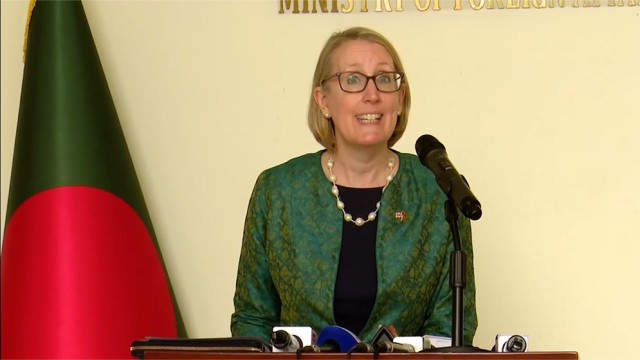The purpose of this article is to examine the health science underlying the Ramadan fast, including how it affects mental health, weight management, metabolic health, and cardiovascular health.
Introduction:
The sacred month of Ramadan holds profound significance for Muslims worldwide. It is a time of spiritual reflection, self-discipline, and increased devotion to Allah. Central to the observance of Ramadan is fasting, a practice that involves abstaining from food, drink, smoking, and sexual activity from dawn until sunset.
While fasting during Ramadan is primarily a religious obligation, its impact on human physiology has garnered significant interest among scientists and researchers. This article aims to delve into the health science behind Ramadan fasting, exploring its effects on metabolic health, weight management, mental well-being, and cardiovascular health.
Understanding Ramadan Fasting:
Ramadan, the ninth month of the Islamic lunar calendar, is considered one of the holiest times for Muslims. It is believed to be the month in which the Holy Qur'an was revealed to the Prophet Muhammad (peace be upon him) as a guidance for all humanity. Fasting during Ramadan is one of the Five Pillars of Islam and is obligatory for adult Muslims, with exceptions for the elderly, pregnant or nursing women, travelers, and those who are ill.
Fasting during Ramadan entails refraining from all food and drink, including water, from dawn (Fajr) until sunset (Maghrib). The pre-dawn meal (Suhoor) is consumed before the break of dawn, and the fast is broken with the evening meal (Iftar) after sunset. In addition to fasting, Muslims are encouraged to increase their acts of worship, charity, and kindness during Ramadan.
The Spiritual Significance of Fasting:
Fasting during Ramadan serves multiple spiritual purposes for Muslims. It fosters self-discipline, self-control, and empathy for the less fortunate. By experiencing hunger and thirst, fasting Muslims develop a deeper appreciation for the blessings bestowed upon them by Allah. Moreover, Ramadan is a time for increased prayer, Quranic recitation, and spiritual reflection, allowing believers to strengthen their relationship with Allah and seek forgiveness for past sins.
The Physiology of Fasting:
Fasting induces a series of physiological changes in the body, driven by the absence of food intake and the body's response to fasting. During the fasting period, the body transitions from a fed state to a fasted state, triggering various metabolic processes to maintain energy balance and preserve vital functions.
One of the key mechanisms activated during fasting is autophagy, a cellular process that involves the degradation and recycling of cellular components. It was devised by Japanese cell biologist Yoshinori Ohsumi who won the Nobel Prize in Medicine in 2016 for the invention of ‘Autophagy’.
During this research, he applied the intermittent fasting (IF) method to microorganisms named ‘Yeast’.Autophagy plays a crucial role in cellular maintenance, eliminating damaged proteins and organelles, providing fuel for energy, and combating infections and diseases. Research has shown that fasting can induce autophagy, leading to a range of health benefits.
Health Benefits of Ramadan Fasting:
Numerous studies have investigated the potential health benefits of Ramadan fasting, shedding light on its effects on metabolic health, weight management, mental well-being, and cardiovascular health. Scientists and researchers have made significant strides in understanding the physiological mechanisms underlying these benefits, as well as the implications for disease prevention and management.
1. Improved Metabolic Health:
One of the most well-documented benefits of Ramadan fasting is its positive impact on metabolic health. Studies have shown that fasting during Ramadan can lead to improvements in insulin sensitivity, blood glucose levels, and lipid profile. These improvements may reduce the risk of metabolic disorders such as type 2 diabetes and cardiovascular disease. Researchers like Dr. Ayse Sahin and Dr. Mohsen Nematy have contributed to understanding these metabolic benefits through their studies on Ramadan fasting.
2. Weight Management:
Ramadan fasting has been associated with weight loss and improved body composition in some individuals. The restricted eating window and changes in meal timing during Ramadan may promote calorie restriction and fat loss, leading to improvements in body weight and composition. Dr. Rania Mekary from Harvard University has conducted studies on intermittent fasting, including Ramadan fasting, and its effects on weight management.
3. Enhanced Mental and Spiritual Well-being:
In addition to its physical benefits, Ramadan fasting may have positive effects on mental and spiritual well-being. Many fasting individuals report increased feelings of spirituality, mindfulness, and emotional resilience during Ramadan. The discipline and self-control required for fasting can foster a sense of inner peace and contentment. Dr. Tauseef Ahmad Khan, a researcher from Pakistan, has explored the psychological aspects of Ramadan fasting and its impact on well-being.
4. Potential Anti-inflammatory Effects:
Fasting during Ramadan has been associated with reductions in marker
s of inflammation in the body. Chronic inflammation is a known risk factor for various diseases, including cardiovascular disease, diabetes, and cancer. By reducing inflammation, Ramadan fasting may help lower the risk of these chronic inflammatory conditions. Dr. Faris Al-Khawaldeh and other researchers have investigated the anti-inflammatory effects of Ramadan fasting in their studies.
5. Improved Cardiovascular Health:
Several studies have suggested that Ramadan fasting may lead to improvements in cardiovascular health parameters such as blood pressure, cholesterol levels, and oxidative stress markers. These improvements could have significant implications for reducing the risk of cardiovascular disease, the leading cause of mortality worldwide. Dr. Razeen Mahroof, among others, has conducted research on the cardiovascular effects of Ramadan fasting.
Conclusion:
Ramadan fasting is a sacred practice observed by millions of Muslims worldwide, characterized by self-discipline, spiritual reflection, and acts of worship. While fasting during Ramadan is primarily a religious obligation, its effects on human health and physiology have been the subject of extensive scientific research Studies.
End//voice7news
A global news agency.































Comment: